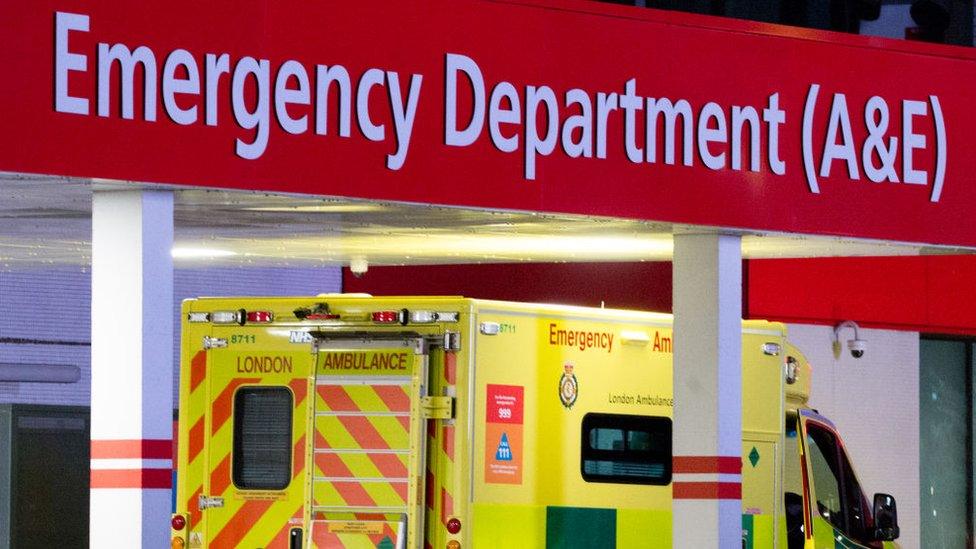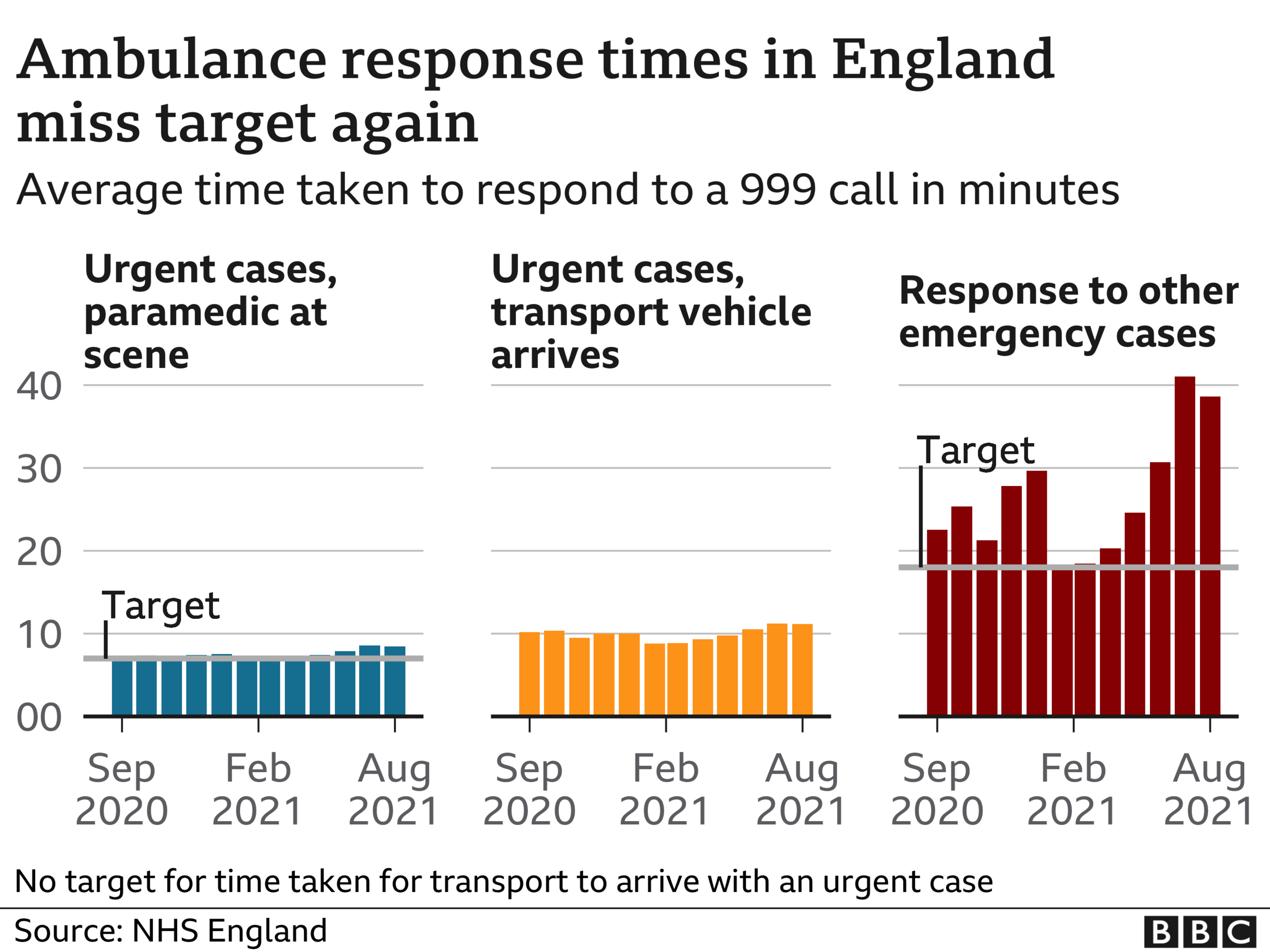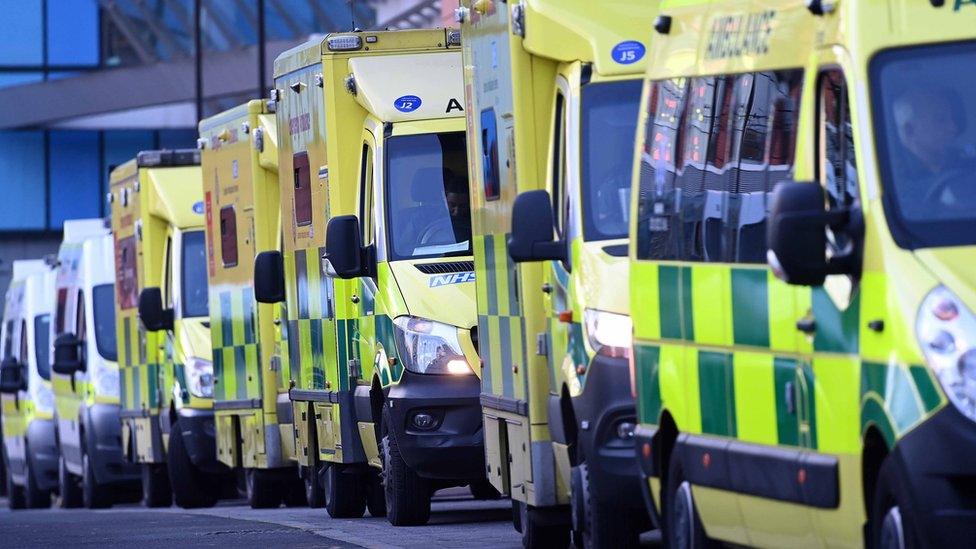London father dies of suspected heart attack after 70-minute ambulance wait
- Published

The London Ambulance Service is investigating its response to the incident , which took more than 50 minutes longer than the target average for such cases
A 70-year-old man from south-east London died of a suspected heart attack after an ambulance took almost 70 minutes to respond to a 999 call.
The London Ambulance Service is investigating its response to the incident on 1 November, which took more than 50 minutes longer than the target.
The patient's daughter arrived at his home before the ambulance and delivered CPR after her father stopped breathing.
The incident comes amid record ambulance delays.
Ambulances in England aim to respond to Category 2 calls, such as major burns, epilepsy and strokes, in an average time of 18 minutes.
The latest data from October shows an average response time to such calls of 53 minutes and 54 seconds, up from 45 minutes and 30 seconds in September.
Emergency targets dictate that 90% of such calls should be responded to within 40 minutes.

'Excruciating pain'
The man's other daughter (neither of whom wish to be identified) said: "The emotional trauma of witnessing this and desperately trying to save his life, knowing he was seriously let down, is overwhelming.
"His last words to (Emma) was that 'this is the most excruciating pain I've ever had' and she now has to live with that.
"Nothing will bring him back but we will do all we can to make sure no-one else loses their life unnecessarily and no-one else goes through this trauma."
The daughters made several emergency calls, in which they said they were told an ambulance would be with them "within 41 minutes from the first call".
He stopped breathing an hour after 999 was first called, at which point another emergency call was made while his daughter gave him CPR and the incident was redefined as Category 1 for the most serious incidents.
An ambulance then arrived shortly afterwards, 69 minutes after the first call was made.
An LAS spokesperson said: "Our thoughts are with the patient's family and friends during this difficult time and we send them our deepest condolences.
"We are looking into how we responded to the patient, and would encourage the family to reach out to our patient experiences team so we can support them in reviewing what happened."
Related topics
- Published8 January 2021

- Published9 September 2021
